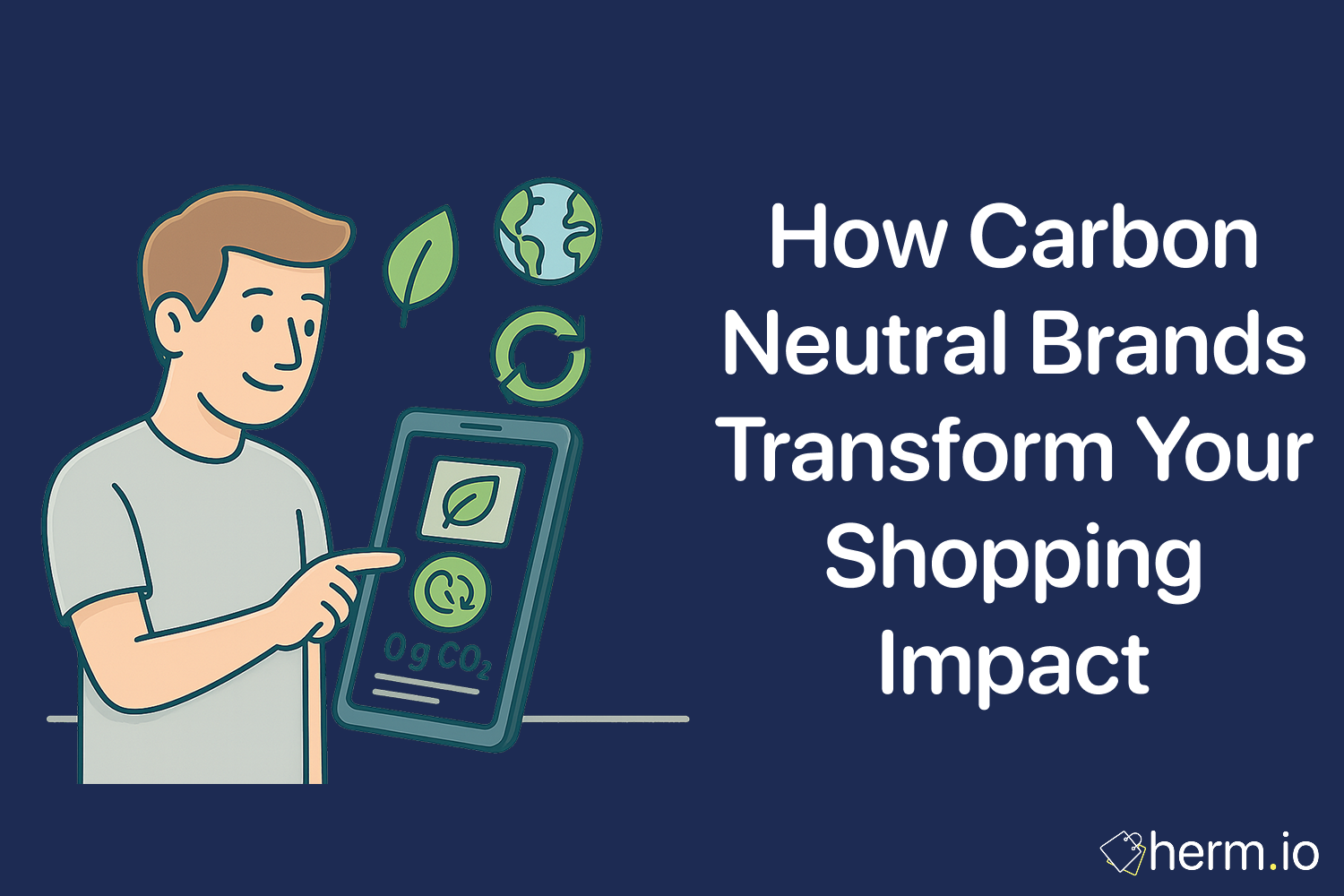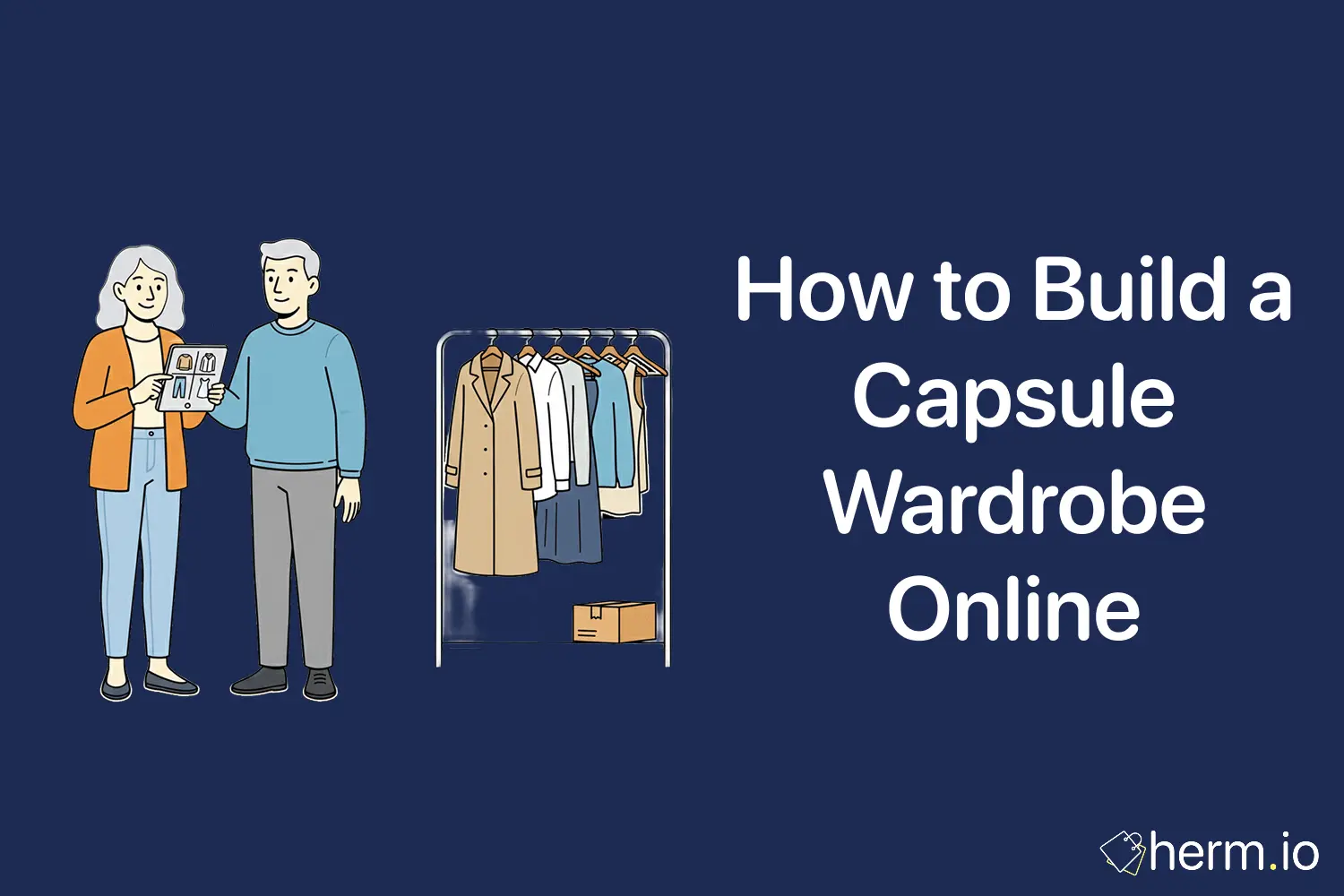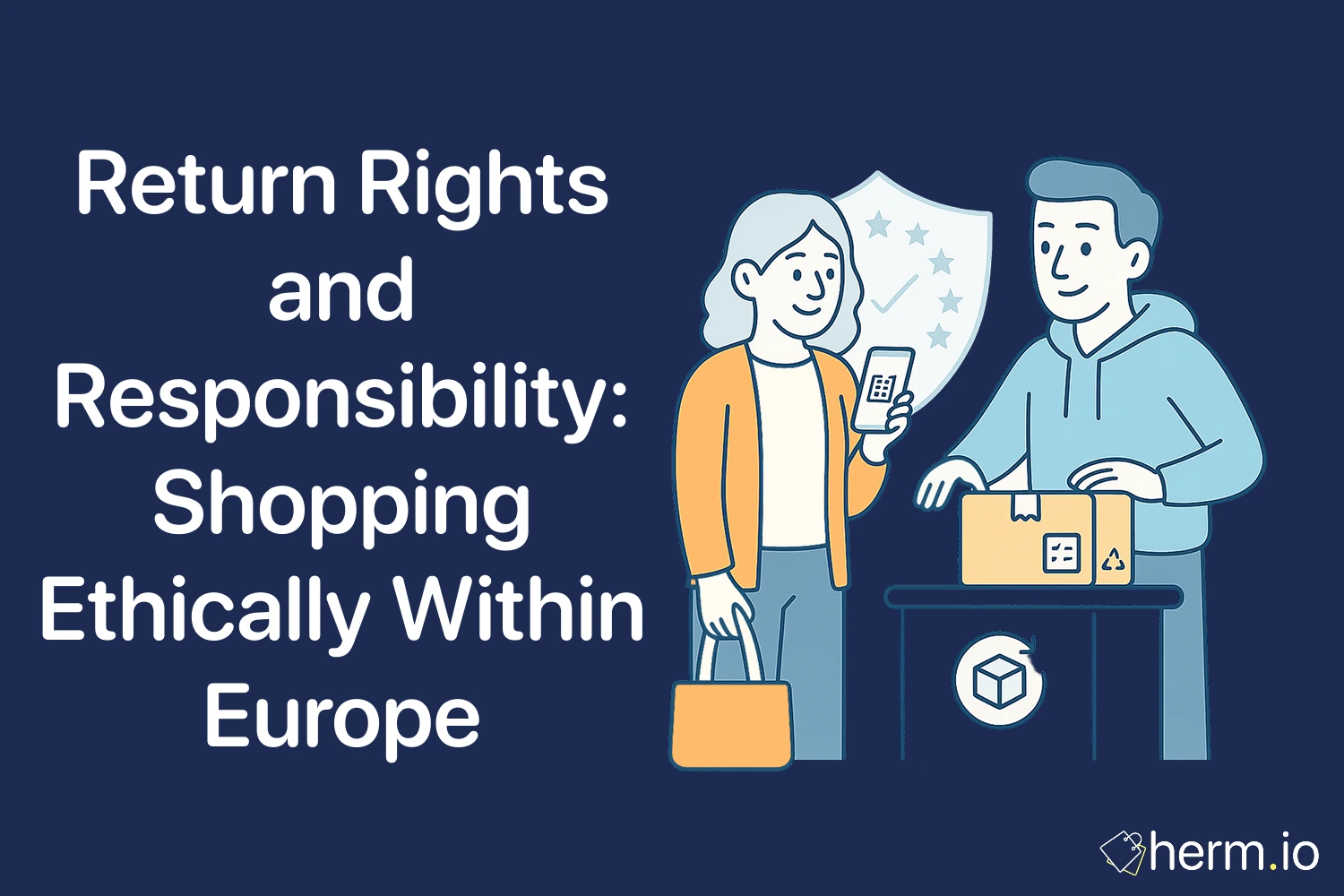
What strikes me as particularly important about our shopping choices is how they ripple outward, creating waves of change we rarely see. Last month, whilst browsing for a new pair of trainers, I noticed something that made me pause: a small label reading "carbon neutral." This wasn't just marketing speak; it represented a fundamental shift in how companies approach their environmental responsibility.
Like watching patterns emerge in a forest ecosystem, I've observed how carbon neutral brands are quietly reshaping the shopping landscape. These companies don't simply slap green labels on their products; they meticulously measure, reduce, and offset their carbon emissions across every stage of production and delivery. For conscious shoppers, supporting these brands creates meaningful environmental impact whilst often discovering superior quality products.
Quick Wins: Support Carbon Neutral Brands Today
- Look for Climate Neutral certification badges - these require annual verification and genuine emission reductions
- Check shipping options - many carbon neutral brands offer climate-conscious delivery at no extra cost
- Read sustainability reports - authentic brands publish detailed annual impact data
- Compare product lifecycles - carbon neutral items often last longer, saving money over time
- Join brand loyalty programmes - many eco-focused companies reward sustainable shopping habits
Understanding Carbon Neutrality: More Than Just Marketing
We have a responsibility to understand what carbon neutrality actually means before we can make informed shopping decisions. Carbon neutrality represents a careful balance: companies measure their greenhouse gas emissions, implement reduction strategies, and offset remaining emissions through verified environmental projects.
What makes this approach particularly compelling is the comprehensive nature of measurement. Companies examine three distinct areas: direct emissions from their facilities, indirect emissions from purchased energy, and the broader supply chain emissions including raw materials, manufacturing, packaging, and shipping. This thorough assessment reveals the true environmental cost of bringing products to your doorstep.
Like watching a craftsperson perfect their technique over years, genuinely carbon neutral brands treat this process as ongoing refinement rather than a one-time achievement. They publish annual updates, set progressively ambitious reduction targets, and invest in increasingly sophisticated offset projects.
Four Carbon Neutral Brands Worth Supporting
Patagonia: The Repair Revolution Pioneer
Patagonia's approach to carbon neutrality extends far beyond offsetting emissions. Their Worn Wear programme encourages customers to repair rather than replace items, typically saving shoppers £40-80 per repair compared to buying new. I've personally saved over £150 using their repair services over two years.
Their carbon strategy focuses heavily on renewable energy investments and supply chain improvements. What sets them apart is their transparency; they publish detailed environmental impact data and donate 1% of sales to grassroots environmental groups.
Veja: Community-Centred Sustainability
Veja disrupts traditional trainer manufacturing by sourcing wild rubber directly from Amazon communities and using organic cotton through Fair Trade partnerships. Their life cycle assessments track emissions from material sourcing through final delivery.
These trainers typically cost £80-120, comparable to mainstream brands, yet last significantly longer due to their construction methods. The company's community forestry investments offset emissions whilst supporting rubber tapper livelihoods, creating social impact alongside environmental benefits.
Organic Basics: Transparent Impact Reporting
What particularly impresses me about Organic Basics is their detailed carbon footprint reporting for individual products. They publish annual sustainability reports showing exactly how each purchase contributes to climate action.
Their essentials range from £25-85, with items lasting notably longer than conventional alternatives. Their "teleport" programme provides carbon neutral shipping automatically, removing the burden of choice from environmentally conscious shoppers.
Allbirds: Innovation in Carbon Reduction
Allbirds sets ambitious targets to reduce carbon emissions per shoe pair to under 20kg CO₂e, compared to the industry average of 35kg. They partner with carbon removal startups developing biochar and direct air capture technologies.
Priced between £85-140, their shoes often receive praise for comfort and durability. Customer testimonials frequently mention items lasting 2-3 years with regular wear, making the cost per wear highly competitive with conventional options.
Recognising Authentic Certifications
Climate Neutral Certification requires companies to measure their complete carbon footprint, offset 100% of emissions through verified projects, and commit to reduction targets. This certification demands annual renewal with updated data, ensuring ongoing accountability.
B Corp certification, whilst broader than carbon neutrality alone, evaluates environmental performance alongside social responsibility, governance, and customer practices. Companies achieving high B Corp scores typically demonstrate robust sustainability commitments including comprehensive carbon management.
Smart Shopping: Carbon Neutral Delivery Options
Many overlook shipping emissions when calculating environmental impact, yet last-mile delivery can add significant carbon footprint to purchases. Forward-thinking brands partner with logistics companies offering carbon neutral shipping through programmes like DHL GoGreen and UPS Carbon Neutral.
These services calculate shipment carbon footprints and offset emissions through renewable energy or forestry projects. Some brands, like Organic Basics, include carbon neutral shipping automatically, whilst others offer it as a no-cost upgrade during checkout.
Sustainable packaging represents another consideration: recycled corrugated cardboard, water-based inks, and minimal plastic use reduce environmental impact whilst often providing superior protection for products during transport.
Spotting Greenwashing: Protecting Your Values and Wallet
We have a responsibility to distinguish authentic environmental commitments from marketing manipulation. Genuine carbon neutral brands publish comprehensive greenhouse gas inventories covering all emission scopes, not just convenient segments.
Vague language like "eco-friendly" or "green" without supporting verification should raise concerns. Authentic companies share specific offset project details, retirement certificates, and third-party verification standards such as the Verified Carbon Standard or Gold Standard.
Excessive reliance on offsets without meaningful internal reductions often indicates incomplete commitment. Quality carbon neutral brands prioritise emission reductions first, using offsets only for genuinely unavoidable emissions.
Frequently Asked Questions
How can I verify a brand's carbon neutral claims without spending hours researching?
Look for Climate Neutral certification badges on product pages or company websites. These require third-party verification and annual renewal. Additionally, check whether companies publish annual sustainability reports with specific emission data rather than general environmental statements.
Do carbon neutral products actually cost more than conventional alternatives?
Initial purchase prices often remain competitive, with many carbon neutral brands pricing similarly to premium conventional alternatives. The key difference lies in durability; these products frequently last longer, reducing replacement costs over time. For example, my Patagonia jacket has lasted five years compared to previous jackets lasting 2-3 years.
Is carbon offsetting genuine or just paying to pollute?
Quality offsetting serves as a crucial tool for addressing unavoidable emissions, but it cannot replace reduction efforts. Authentic carbon neutral brands prioritise deep emission reductions first, then offset remaining emissions through verified, additional projects that provide permanent carbon removal or prevention.
How do I find carbon neutral options in specific product categories?
Start with Climate Neutral's certified brand directory, which lists companies across various categories. Many sustainable fashion platforms like ASOS's "Responsible Edit" or John Lewis's sustainability filters help identify carbon neutral options. Reading brand sustainability pages also reveals their carbon commitments and certifications.

Isla Penelope Brooks
I'm a British data storyteller and analytics specialist based in Munich. As a Technical University of Munich graduate, I transform complex data into meaningful insights. I'm passionate about equity in data and believe in the responsibility that comes with shaping what people see and think through marketing.

.png)








.png)



.png)
.png)
.png)